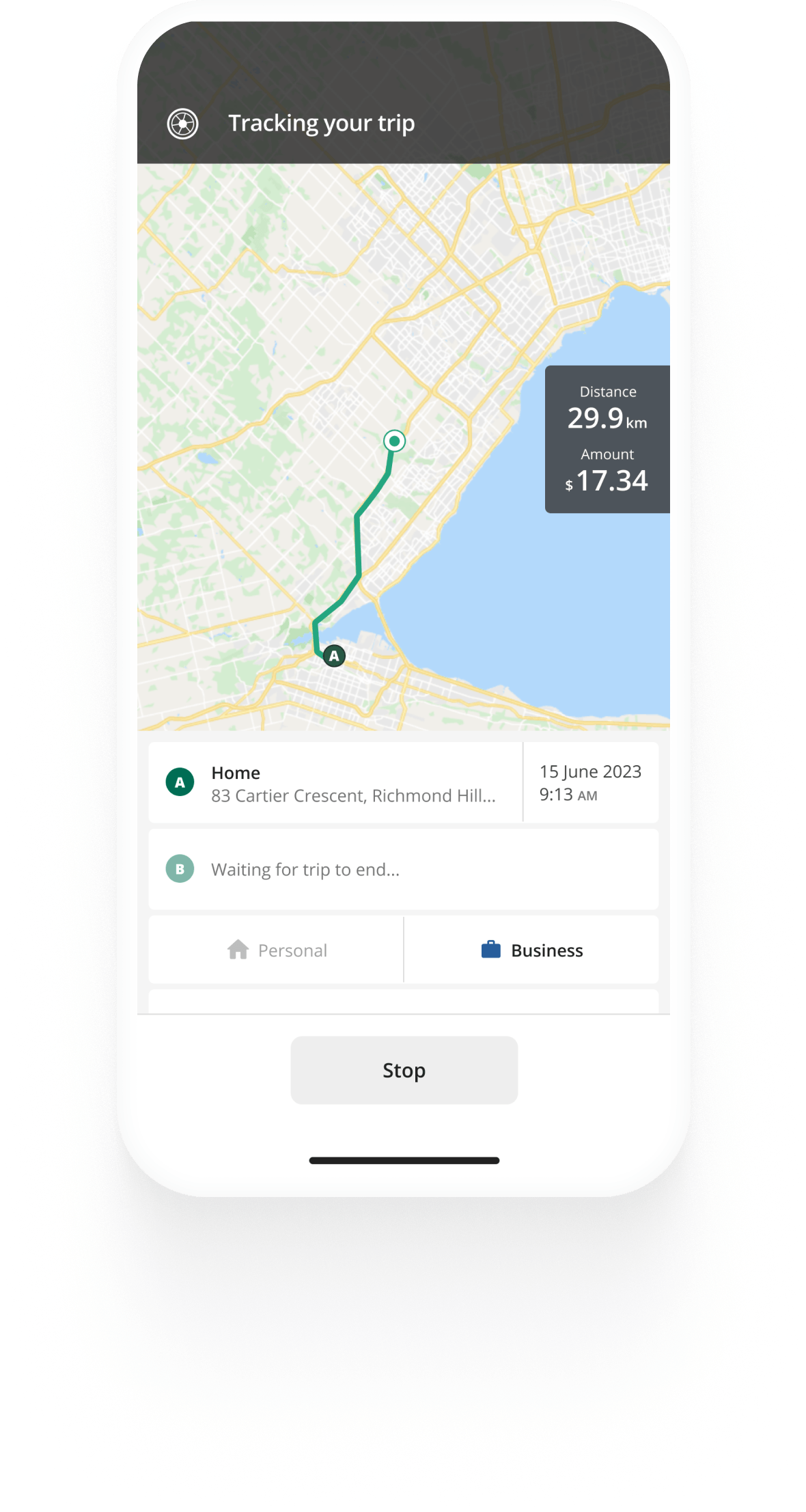Track mileage automatically
Get startedDriver's Log
A driver’s log is a record that truck and bus drivers in Canada must keep. Its purpose is to help monitor drivers’ daily trips and off-duty time. Maintaining a comprehensive driver log book will make sure you don’t get a fine should you be stopped and will ensure you get paid for your on-duty time.
Looking for a mileage logbook for your business kilometres? Sign up to Driversnote and start tracking kilometres automatically.
What to record in your driver’s log
According to Canadian rules, your workday should not exceed 14 hours, excluding mandatory breaks.
You must take breaks that total 2 hours during the workday. Each break should last a minimum of 30 minutes.
The rules assume that during your workday, you will have at least an hour where you don’t drive but are on duty. This amounts to driving a maximum of 13 hours, plus an hour on duty.
However, if for example, you spend 3 hours on duty but not driving, you will only be able to drive for 11 hours.
You must also adhere to the 8-hour uninterrupted break period each day (24 hours).
The driver’s log is recorded on a daily basis.
To put the rules in context, let’s look at an example.
Say you start work at 8 in the morning, you drive for 4 hours and take a 1-hour long break. You drive 4 more hours and take another 1-hour long break. So far, you’ve driven a total of 8 hours and have taken all your daily break. Assume an hour of being on duty but not driving, and that leaves you with 5 more hours of driving.
So, if you started your shift at 8 AM, you will finish work at midnight, leaving you with 8 hours of uninterrupted rest off of work. The earliest you will be able to start work the next day will be at 8 AM.


Track business driving with ease
Trusted by millions of drivers
Automate your logbook Automate your logbook

Automatic mileage tracking and CRA-compliant reporting.
Get started for free Get started for freeRules on keeping a driver’s log book
Your driver’s log must clearly show each day’s driving and resting hours, as well as any additional information your employer may require. You must keep 14 days’ worth of driving in the form of your driver log book at any time in your vehicle.
Most employers will collect your driving logs at the end of each work shift, but some may do so every 20 days.
Since you need to have your daily driver log in your vehicle, while also submitting them to your employee, we strongly suggest using a driver log book with carbon, so you can easily create copies without having to write down the required information twice.
New regulations for keeping a driver’s log
From June 12th 2022 truck drivers, and from July 1st 2023 bus drivers will have to switch to using certified electronic logging devices, also known as ELDs. The new regulation is introduced by Transport Canada in order to improve drivers’ quality of life, reduce driver fatigue by enforcing the proper number of work hours and reduce administration costs. Learn more about the ELD rules for commercial drivers.
Do you receive mileage reimbursement for your mileage? Find out more about reimbursement and deductions in our CRA mileage guide.
FAQ

Tired of logging mileage by hand?
Effortless. CRA-compliant. Liberating.
Related posts
CRA Mileage Rate 2024
January 2, 2024 - 2 min read
The CRA announces 2024 rates for vehicle allowance: From January 1st, 2024, per kilometre rates will increase 2 cents over 2023.
Taxable Employee Benefits in Canada
April 7, 2025 - 10 min read
Which benefits do you offer your employees? A full list of the taxable employee benefits in Canada, and how you calculate their value.
FAQ About The CRA Automobile Allowance
April 7, 2025 - 5 min read
FAQ: What you want to know about automobile allowances and reimbursements as per CRA guidelines for businesses and employees.


